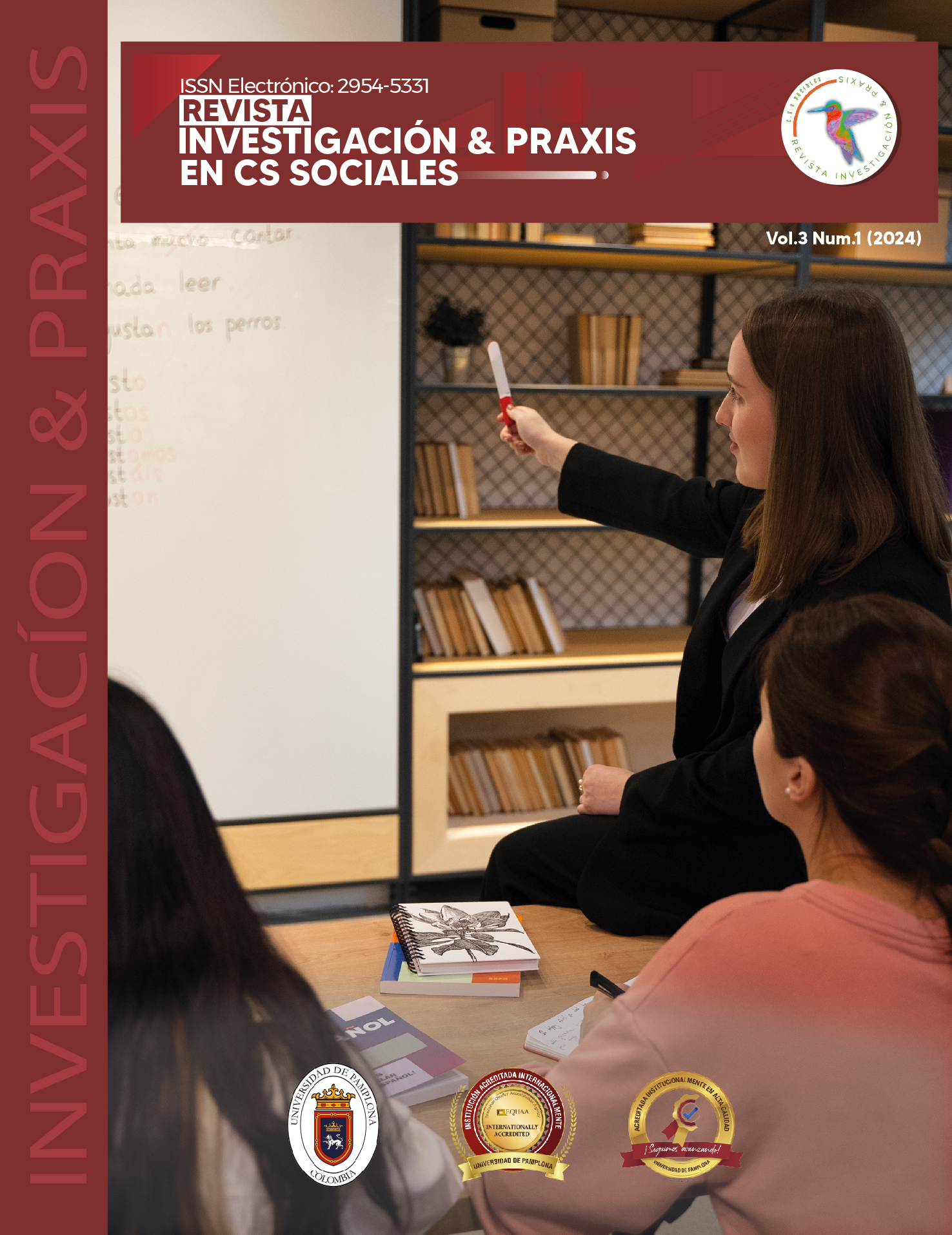Metodologías activas de aprendizaje: aprendizaje basado en proyectos, problemas y retos
DOI:
https://doi.org/10.24054/ripcs.v3i1.3042Palabras clave:
Aprendizaje basado en proyectos, Aprendizaje basado en problemas, Aprendizaje basado en retos, Metodologías activas, educación del siglo XXI, Estrategias educativas, Habilidades críticas, Colaboración, Pensamiento crítico, Resolución de problemasResumen
Este artículo explora las metodologías activas de aprendizaje, específicamente el Aprendizaje Basado en Proyectos (ABP), Problemas y Retos, en estudiantes de tercer y cuarto semestre de los programas de Psicología y Ciencias Sociales de la Universidad de Pamplona. Los objetivos del estudio incluyen identificar y evaluar la efectividad de estas metodologías en el contexto educativo contemporáneo. La investigación se basa en una revisión sistemática de la literatura existente y el análisis de estudios de caso en instituciones educativas que han implementado estas metodologías, los resultados muestran que el ABP mejora significativamente la comprensión y retención del conocimiento en los estudiantes, al tiempo que desarrolla habilidades esenciales como la resolución de problemas, el pensamiento crítico y la colaboración.
Esta investigación contribuye al campo educativo al ofrecer estrategias prácticas para la implementación de metodologías activas de aprendizaje, destacando su relevancia en la formación integral de los estudiantes y su preparación para enfrentar desafíos académicos y profesionales.
Referencias
Barron, B., & Darling-Hammond, L. (2008). Teaching for Meaningful Learning: A Review of Research on Inquiry-Based and Cooperative Learning. George Lucas Educational Foundation. https://doi.org/10.3200/JOER.98.6.258-264
Barron, B., & Darling-Hammond, L. (2008). Enseñanza para un aprendizaje significativo: Una revisión de la investigación sobre el aprendizaje basado en la indagación y el aprendizaje cooperativo. En L. Darling-Hammond & J. Bransford (Eds.), Aprendizaje poderoso: Lo que sabemos sobre la enseñanza para la comprensión (pp. 11-70). Jossey-Bass.
Bell, S. (2010). Aprendizaje basado en proyectos para el siglo XXI: Habilidades para el futuro. The Clearing House: A Journal of Educational Strategies, Issues and Ideas, 83(2), 39-43. https://doi.org/10.1080/00098650903505415
Braun, V., & Clarke, V. (2006). Using thematic analysis in psychology. Qualitative Research in Psychology, 3(2), 77-101.
Blumenfeld, P. C., Soloway, E., Marx, R. W., Krajcik, J. S., Guzdial, M., & Palincsar, A. (1991). Motivando el aprendizaje basado en proyectos: Sosteniendo la acción, apoyando el aprendizaje. Educational Psychologist, 26(3-4), 369-398. https://doi.org/10.1080/00461520.1991.9653139
Buck Institute for Education. (2019). PBLworks: Aprendizaje basado en proyectos para el siglo XXI. Buck Institute for Education. https://www.pblworks.org/
Cerezo, J., & González, F. (2016). Retos y oportunidades en la implementación del aprendizaje basado en retos. Revista Iberoamericana de Educación, 71(1), 43-62. https://doi.org/10.35362/rie710314
Creswell, J. W. (2013). Research design: Qualitative, quantitative, and mixed methods approaches. Sage Publications.
Du, X., & Kolmos, A. (2009). Aumentando la diversidad en la educación en ingeniería: Un análisis de género en un contexto de ABP. European Journal of Engineering Education, 34(5), 425-437. https://doi.org/10.1080/03043790903137567
Fosnot, C. T., & Perry, R. S. (2005). Constructivism: A psychological theory of learning. En C. T. Fosnot (Ed.), Constructivism: Theory, perspectives, and practice (2ª ed., pp. 8-38). Teachers College Press.
Hernández, R., Fernández, C., & Baptista, P. (2014). Metodología de la investigación. McGraw-Hill.
Krajcik, J. S., & Blumenfeld, P. C. (2006). Aprendizaje basado en proyectos. En R. K. Sawyer (Ed.), The Cambridge Handbook of the Learning Sciences (pp. 317-334). Cambridge University Press. https://doi.org/10.1017/CBO9780511816833.020
Larmer, J., & Mergendoller, J. R. (2010). Siete elementos esenciales para el aprendizaje basado en proyectos. Educational Leadership, 68(1), 34-37. http://www.ascd.org/publications/educational-leadership.aspx
Savery, J. R. (2006). Descripción general del aprendizaje basado en problemas: Definiciones y distinciones. The Interdisciplinary Journal of Problem-Based Learning, 1(1), 9-20. https://doi.org/10.7771/1541-5015.1002
Spradley, J. P. (2016). Participant observation. Waveland Press.
Publicado
Número
Sección
Licencia
Derechos de autor 2024 Revista Investigación & praxis en CS Sociales

Esta obra está bajo una licencia internacional Creative Commons Atribución 4.0.










